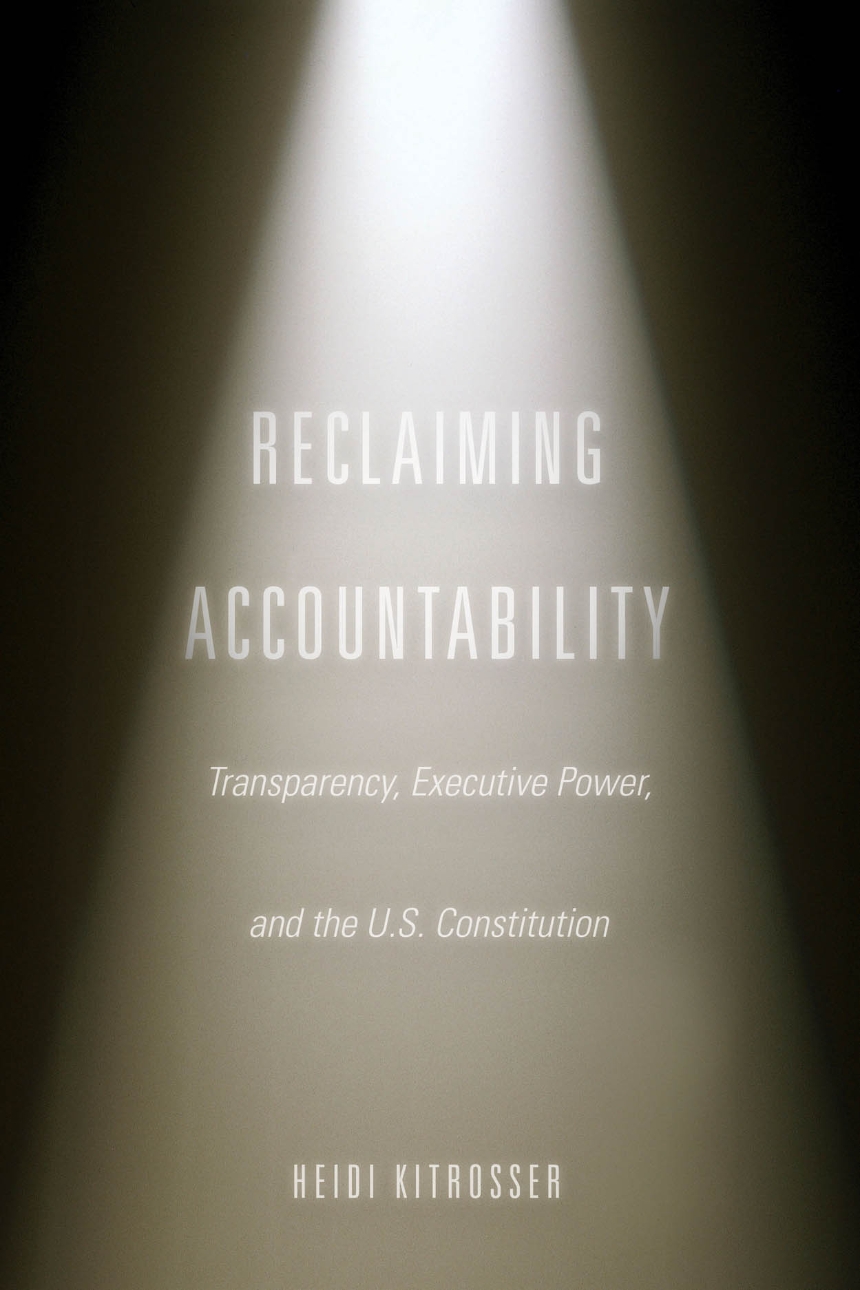Reclaiming Accountability
Transparency, Executive Power, and the U.S. Constitution
9780226565675
9780226191638
9780226191775
Reclaiming Accountability
Transparency, Executive Power, and the U.S. Constitution
Americans tend to believe in government that is transparent and accountable. Those who govern us work for us, and therefore they must also answer to us. But how do we reconcile calls for greater accountability with the competing need for secrecy, especially in matters of national security? Those two imperatives are usually taken to be antithetical, but Heidi Kitrosser argues convincingly that this is not the case—and that our concern ought to lie not with secrecy, but with the sort of unchecked secrecy that can result from “presidentialism,” or constitutional arguments for broad executive control of information.
In Reclaiming Accountability, Kitrosser traces presidentialism from its start as part of a decades-old legal movement through its appearance during the Bush and Obama administrations, demonstrating its effects on secrecy throughout. Taking readers through the key presidentialist arguments—including “supremacy” and “unitary executive theory”—she explains how these arguments misread the Constitution in a way that is profoundly at odds with democratic principles. Kitrosser’s own reading offers a powerful corrective, showing how the Constitution provides myriad tools, including the power of Congress and the courts to enforce checks on presidential power, through which we could reclaim government accountability.
In Reclaiming Accountability, Kitrosser traces presidentialism from its start as part of a decades-old legal movement through its appearance during the Bush and Obama administrations, demonstrating its effects on secrecy throughout. Taking readers through the key presidentialist arguments—including “supremacy” and “unitary executive theory”—she explains how these arguments misread the Constitution in a way that is profoundly at odds with democratic principles. Kitrosser’s own reading offers a powerful corrective, showing how the Constitution provides myriad tools, including the power of Congress and the courts to enforce checks on presidential power, through which we could reclaim government accountability.
272 pages | 6 x 9 | © 2014
Law and Legal Studies: The Constitution and the Courts
Political Science: American Government and Politics
Reviews
Table of Contents
Chapter 1. The Constitutional Law of Government Secrecy
Chapter 2. The Tools and Politics of Constitutional Meaning
Chapter 3. Substantive Accountability and External Checking
Chapter 4. Supremacy Explained and Critiqued
Chapter 5. How Supremacy Undermines Substantive Accountability
Chapter 6. Presidential Supremacy in the Courts
Chapter 7. Substantive Accountability and Internal Checking
Chapter 8. How Unitary Executive Theory Undermines Substantive Accountability
Chapter 9. Where Do We Go from Here?
Notes
Chapter 2. The Tools and Politics of Constitutional Meaning
Chapter 3. Substantive Accountability and External Checking
Chapter 4. Supremacy Explained and Critiqued
Chapter 5. How Supremacy Undermines Substantive Accountability
Chapter 6. Presidential Supremacy in the Courts
Chapter 7. Substantive Accountability and Internal Checking
Chapter 8. How Unitary Executive Theory Undermines Substantive Accountability
Chapter 9. Where Do We Go from Here?
Notes
Awards
Choice Magazine: CHOICE Outstanding Academic Title Awards
Won
Chicago-Kent College of Law: Roy C. Palmer Civil Liberties Prize
Won
